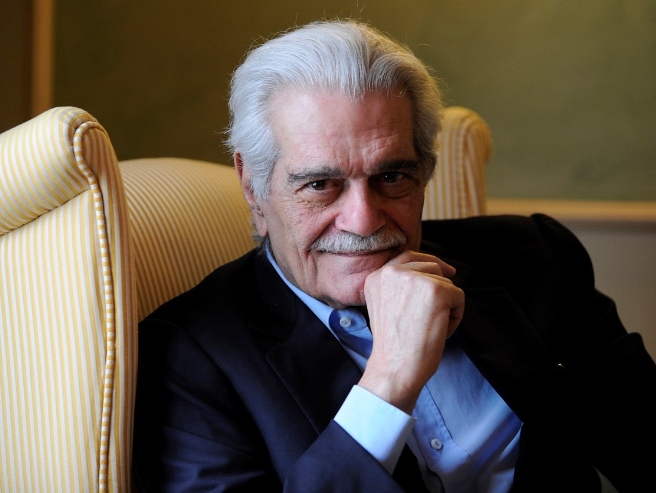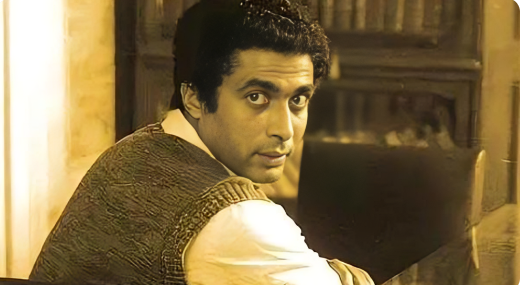Omar EL Sharif
Biography of Actor Omar EL Sharif

- Name: Omar EL Sharif
Biography of Actor Omar EL Sharif
Full Name: Michel Demitri Shalhoub
Stage Name: Omar Sharif
Date of Birth: April 10, 1932
Place of Birth: Alexandria, Egypt
Date of Death: July 10, 2015
Profession: Actor
Nationality: Egyptian
Overview
Omar Sharif was one of the most prominent stars in the history of Egyptian and international cinema. He gained global fame thanks to his unique talent and captivating presence, which made him a widely recognized actor worldwide. He began his artistic career in Egypt before making his way to international fame, particularly in Hollywood. Omar Sharif is considered a symbol of Arab cinema who was able to break barriers and reach a global audience.
Early Life and Education
Omar Sharif was born as Michel Demitri Shalhoub on April 10, 1932, in Alexandria, Egypt, to a middle-class family. He received his education at Victoria College, one of the most prestigious private schools in Alexandria, where he showed an early interest in acting and the arts. He later studied mathematics and physics at Cairo University before deciding to pursue a career in acting.
Acting Career
1. Early Days in Egyptian Cinema
Omar Sharif's acting career began in Egypt with the film "Struggle in the Valley" (1954), directed by the renowned filmmaker Youssef Chahine. The film was a great success and marked Sharif's first breakthrough in Egyptian cinema, gaining him both popular and critical acclaim. He followed up this success with other notable films, including:
- "Struggle on the Nile" (1956)
- "Our Beautiful Days" (1955)
- "Lady of the Palace" (1958)
2. Breakthrough in International Cinema
In 1962, Omar Sharif had his big international break when he was cast as Sherif Ali in David Lean's epic film "Lawrence of Arabia." This role earned him global recognition and an Academy Award nomination for Best Supporting Actor. He also won a Golden Globe Award for the same role.
Following this success, Sharif continued working with David Lean, starring in other acclaimed films, such as:
- "Doctor Zhivago" (1965): He played the lead role in this romantic historical epic, which became one of his most iconic films.
- "Funny Girl" (1968): He starred opposite Barbra Streisand in this musical comedy.
3. Other International Works
Sharif continued to take on diverse roles in global cinema, with performances in:
- "The Night of the Generals" (1967)
- "The Tamarind Seed" (1974)
- "Mayerling" (1968)
4. Return to Egyptian Cinema
Despite his international success, Omar Sharif never abandoned Egyptian cinema. He continued to deliver memorable performances in local films such as:
- "The Egyptian Citizen" (1991)
- "Ayoub" (1983)
- "Hassan and Morcos" (2008), which also starred the legendary actor Adel Imam.
Awards and Honors
Throughout his illustrious career, Omar Sharif received numerous prestigious awards and honors, including:
- Golden Globe for Best Supporting Actor for "Lawrence of Arabia" (1962)
- Golden Globe for Best Actor in a Drama for "Doctor Zhivago" (1965)
- Order of Arts and Letters of France (2004)
- César Award for Best Actor for his role in "Monsieur Ibrahim" (2003)
Personal Life
In 1955, Omar Sharif married the famous Egyptian actress Faten Hamama, and together they formed a successful and iconic couple both on and off screen. They had one son, Tarek Sharif, who appeared with him in the film "Doctor Zhivago." However, their marriage ended in 1974.
Omar Sharif was also known for his passion for the card game bridge, becoming a professional and globally recognized bridge player.
Legacy
Omar Sharif is one of the few actors who managed to bridge the gap between Egyptian and international cinema. His cinematic legacy remains cherished in both the Egyptian and global film industries, as he is seen as an exemplary figure in acting and charisma.
Death
Omar Sharif passed away on July 10, 2015, at the age of 83 after suffering from Alzheimer's disease. His death brought sorrow to fans worldwide as the cinema lost a true international icon.
Conclusion
Omar Sharif remains a symbol of breaking boundaries from local to global fame. His films and performances continue to be celebrated by cinema lovers around the world, for their depth and exceptional talent, making him a legendary figure that will never be forgotten.




